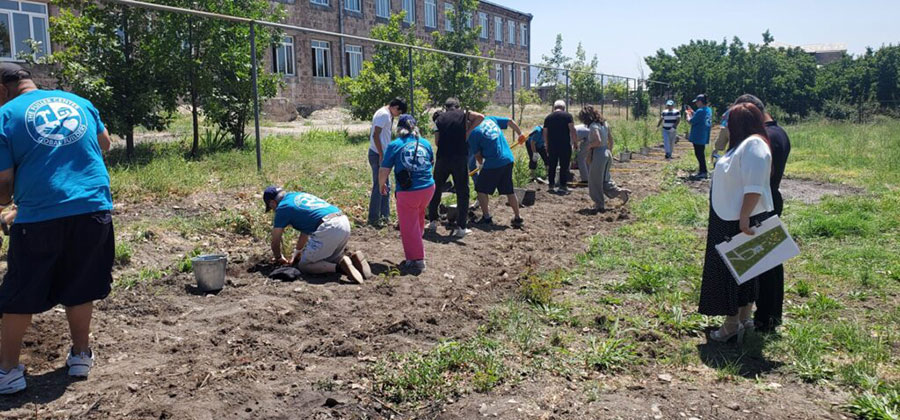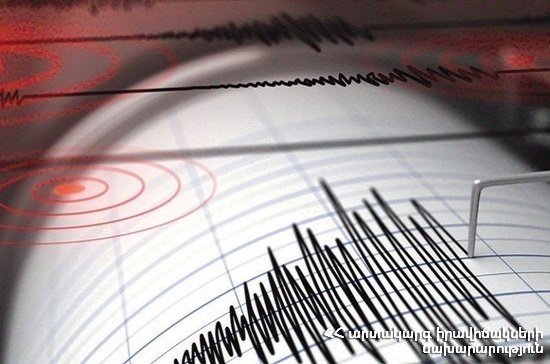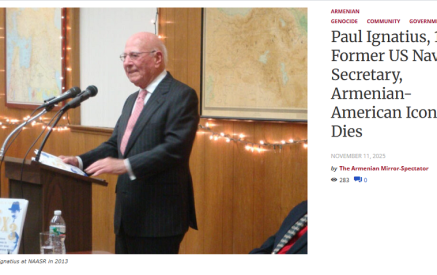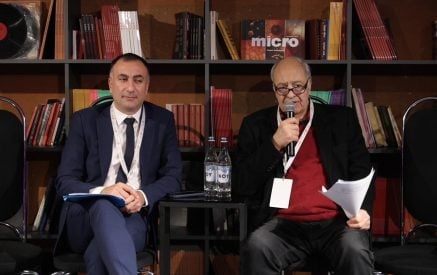by Stepan Piligian
We are all familiar with the phrase: “It is more blessed to give than to receive.” Its origin is in scripture found in Acts 20:35 from the words of our Lord Jesus Christ. I remember being taught this phrase in Sunday School assemblies. In later grades, entire lessons were focused on what these words mean and how we can apply them in our lives. The teachings of our Lord have universal applicability, and this one is no exception. My mother would tell us to be kind to our peers as a way of building relationships. Giving through kindness was a rewarding experience.
Our faith teaches that one of the greatest acts of giving is forgiveness. Whether it is directed at individuals or to ourselves, forgiveness releases a sense of calm and fulfillment that God intended. This phrase is the intended foundation of all philanthropy. When asked why they donate millions to museums, hospitals or other charities, many benefactors refer to a need to “give back.” This may reflect a modest upbringing or desire to reciprocate help to a group that provided them support at a critical personal juncture. Pure human motivations find joy in giving without reward. In the vernacular, we refer to this as giving “without any strings attached.”
This occurs when the heart leads the mind. Human frailty finds itself in egos. This is the battle we all fight. Are we here to better ourselves only, or do we desire a greater purpose of improving the lives of others through giving? In our material society, we tend to think of giving only in financial terms. This is one way, but our faith teaches us that time, talent and treasure are parallel paths. Our Armenian community functions on the successful giving of all three. Each is critical, and perhaps more importantly, they enable full participation by all community members. Each of us has at least one and probably more of these gifts to offer.
The beauty of this scripture is that it can be applied to all aspects of our lives. Let’s look at our communal and global Armenian life through the lens of giving and receiving. Our diaspora operates on the dependency of a remarkable outpouring of giving. It is stunning to consider that for over 100 years our communities have functioned through the generosity and commitment of individuals, organizations and foundations who have given their time, talent and treasure. It is also important to note that when we have been less than optimal, or frankly dysfunctional, it has been a reflection of not following this command. Simply stated, we have allowed egos (ours and others’) to make receiving more important than giving. When donations are listed by amount, why do we judge who and how much people give rather than rejoice that the mission is being supported?
As humans, we have certain weaknesses that create interpersonal conflicts. The desire for power and control is the main culprit. Anyone in community life has experienced this downside. Sometimes it is a mere nuisance, but there are moments when it can be destructive. It is the number one reason why people leave our communities and blend into the woodwork of assimilation. In its purest form, if each of us “gave” with love in our hearts for the mission and expected nothing in return, most of our communal conflict would be eradicated. Naive? Perhaps, but it would be a better community. There are those who expect power and influence for their giving. It is equally troubling that there are more who judge and are jealous of the givers. We are a self-governing community. Each of us individually and collectively has a responsibility to prevent these behaviors.
We can apply this to the diaspora as it relates to the homeland. Our diaspora operated as a completely independent political entity from its inception until the emergence of the republic in 1991. There are international institutions that provide some commonality across the diaspora, but even the church was limited as to what it could do until the independence of Armenia. The isolation of diaspora communities from the homeland enabled a sense of independence to build infrastructure and focus on sustainability. It also created difficulty in adjusting to a new reality after Armenia’s emergence.
A primary example is that the republic is fully responsible for managing its foreign relations and determining its direction as a sovereign nation. That would suggest that the support of the diaspora, which has been substantial, takes on a more integrated or subordinated role. I believe that the western diaspora protects its independence yet still expects to carve out what is considered foreign policy work in influencing the policies of host countries. This is problematic, because it sub-optimizes our limited resources. Advocacy work in the United States should be an integrated part of Armenia’s strategy. A strong diaspora is effective only when it is integrated into a greater mission. Independent work is noble and perhaps well intended but limited. What prevents further integration by the diaspora?
This subject can be easily misinterpreted, as the diaspora is unwilling to accept any criticism because of its history of philanthropy and political support for the homeland. Perhaps that’s the point. When the diaspora criticizes the homeland for its policies, one can almost hear: “We know better, and besides, look at how much money we donate.”
When we believe “it is more blessed to give than to receive,” we must expect nothing in return for our benevolence. We don’t do it because we think we are correct, and we certainly should not invest because we hope to gain influence. When I hear some Armenians who support Armenia declare that they are withdrawing their activity because they don’t agree with certain policies, I wonder about the depth and intent of their commitment. It was the diaspora that dreamed of a free Armenia as descendants of depopulated Western Armenia. When independence emerged in the geopolitical turbulence of 1991, that dream became reality, yet we have heard oscillating levels of support for the homeland based on short-term conditions. Our support cannot be based on our perceptions.
I have great admiration for many of the impactful nonprofits such as Orran, Paros, Tree Project and the Women’s Support Center that are committed to improving the lives of the citizens of Armenia and the country in general. They have been committed to Armenia and maintain that commitment independent of political events. It is a model that all of the diaspora should follow. Our support must remain steadfast, and frankly, there is a fine line between well-intended criticism and meddling. Some of the acrimonious relationships in the diaspora are rooted in expecting to “receive” rather than simply “give.”
In the five years we have worked with the Paruyr Sevak village, we have been fortunate to cross paths with some remarkable people from the diaspora who understand “giving” without strings. The small, inspiring team at Paros manages hundreds of projects in multiple geographies that impact thousands. A nonprofit called Focus on Children Now quietly outfits primary school classrooms and playgrounds, bringing smiles to hundreds of children. An American Armenian group of young professionals called Hoops for Haiastan promotes basketball in Armenia by building and equipping basketball facilities. They are not apolitical individuals. They have opinions about the security of Armenia, but they understand that as a diaspora group, they must maintain a self-discipline to “give” and expect nothing but the quality of life improvement of others. It is challenging, but it is a labor of love.
A few years ago, the mayor of Paruyr Sevak village asked how he can thank the American Armenians who have supported the development of his village. My response was that there are many Armenians in America who express their patriotism and love of Armenia through this type of work. It is deeply connected to a subconscious need to give back that has hovered over the diaspora since the Genocide. Our grandparents escaped to the west, and generations have prospered. Sharing our good fortune is the essence of the Armenian version of “it is more blessed to give than to receive.” It should be as simple as that. Forget about trying to influence political outcomes from the outside. You are not citizens. It causes instability, and it creates the perception that you are owed something for your support. We aren’t.
The diaspora will always play an important role in the future of Armenia, because there are thousands of individuals and organizations who work for Armenia with “unconditional love.” There are no distractions or opinions that deter them from improving the lives of our brethren. These are the people we need to make visible and emulate as role models. They know the peace and inner satisfaction that come from “giving” regardless of circumstances. These are the people who are building a solid trust between the people of Armenia and the diaspora. There are two extreme perceptions in the diaspora of financial support for Armenia — charity and influence. When we invest in relationships as well as projects, the perception of charity vanishes, as we become a family. The challenge of influence within the diaspora can be controlled with a “giving” mentality. Seeking inappropriate influence from the diaspora will not help Armenia. How can we advocate for Armenia’s sovereignty yet seek influence from outside its borders? These are difficult concepts to embrace, but we are past the opportunity for low hanging fruit. Each of our actions counts amid these perilous times. What is more important, our egos or the fresh air of humility?



























































